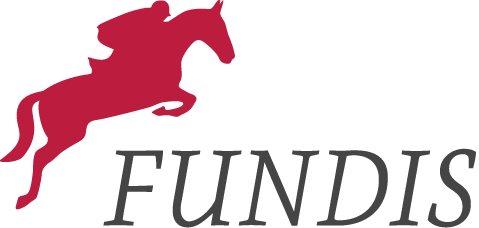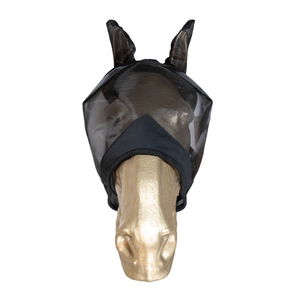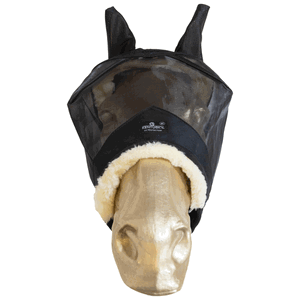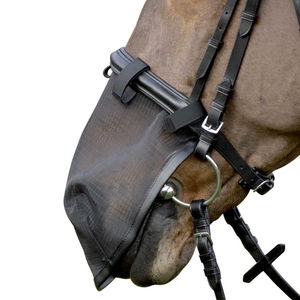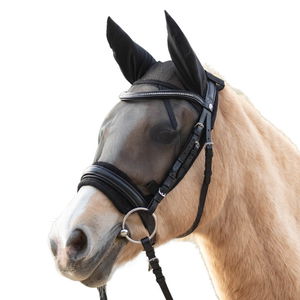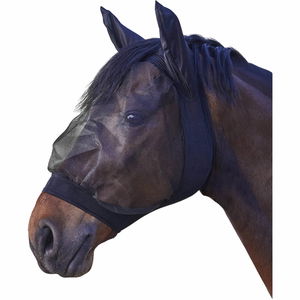Fly Masks
(126)Frequently asked questions about Fly Masks
Fly masks protect the horse from annoying flies, horseflies and other insects. Depending on the model, they cover the horse's eyes, ears and sometimes the nose. There is a distinction between the following common fly masks: Fly mask with ear protection, fly mask with UV protection, fly mask with (removable) noise protection and fly mask with fringes. While most fly masks can be closed with a Velcro closure, there are also variants to pull over. The important thing with any model is that it fits properly and does not interfere with the horse.
Primarily, a horse needs a fly mask to be protected from flies and other insects. The mask prevents the annoying parasites from bothering the horse's eyes, ears and sometimes nose. During the warm months, insects multiply quickly and swarm around the four-legged friends, which can become extremely uncomfortable. Some horses are particularly sensitive to insects and can become stressed or irritated more easily. A fly mask prevents this problem and helps the horse feel more comfortable outside. If your horse is prone to sunburn quickly, a fly mask with UV protection can be useful to protect sensitive skin areas from excessive sun exposure. Horses that suffer from eye problems can also benefit from a fly mask as it protects the eyes from dust, dirt and insects.
Depending on the manufacturer, fly masks are available in sizes XXS to XXL or in Shetty, Pony, Cob (VB), Full (WB) and Extra Full (WB-XL). Make sure that the fly masks does not constrict your horse or put pressure on the eyes. The openings at the nose and nape of the neck should be tight enough to prevent flies from getting through. Most fly masks can be adjusted to fit the horse's head with Velcro. If you are unsure what size you horse needs, it is best to order several to try on.
The fly mask should be tight and without gaps on the head. It is also important that there is enough space between the mask and the horse's eyes. The net of the fly mask should in no case come close to the eyes. A more stable net is preferable to a thin, elastic one, because this way the eye clearance under the fly mask is maintained due to the shape stability. For continuous eye freedom, a fly mask with a bracket is best. This prevents the net from bending inward and poking the eye when the horse rolls.
In principle, you can ride with a fly mask, but the prerequisite is that it fits well and is securely fastened to the horse's head so that it does not slip or interfere while riding. In addition, the fly mask must not rub or interfere with the position of the bridle. It is best to attach the mask over the snaffle so that you can remove it quickly if you are in doubt. If your horse is only sensitive at the ears when riding, a fly bonnet is also sufficient. You can even choose one to match your saddle pad and horse boots or bandages.
